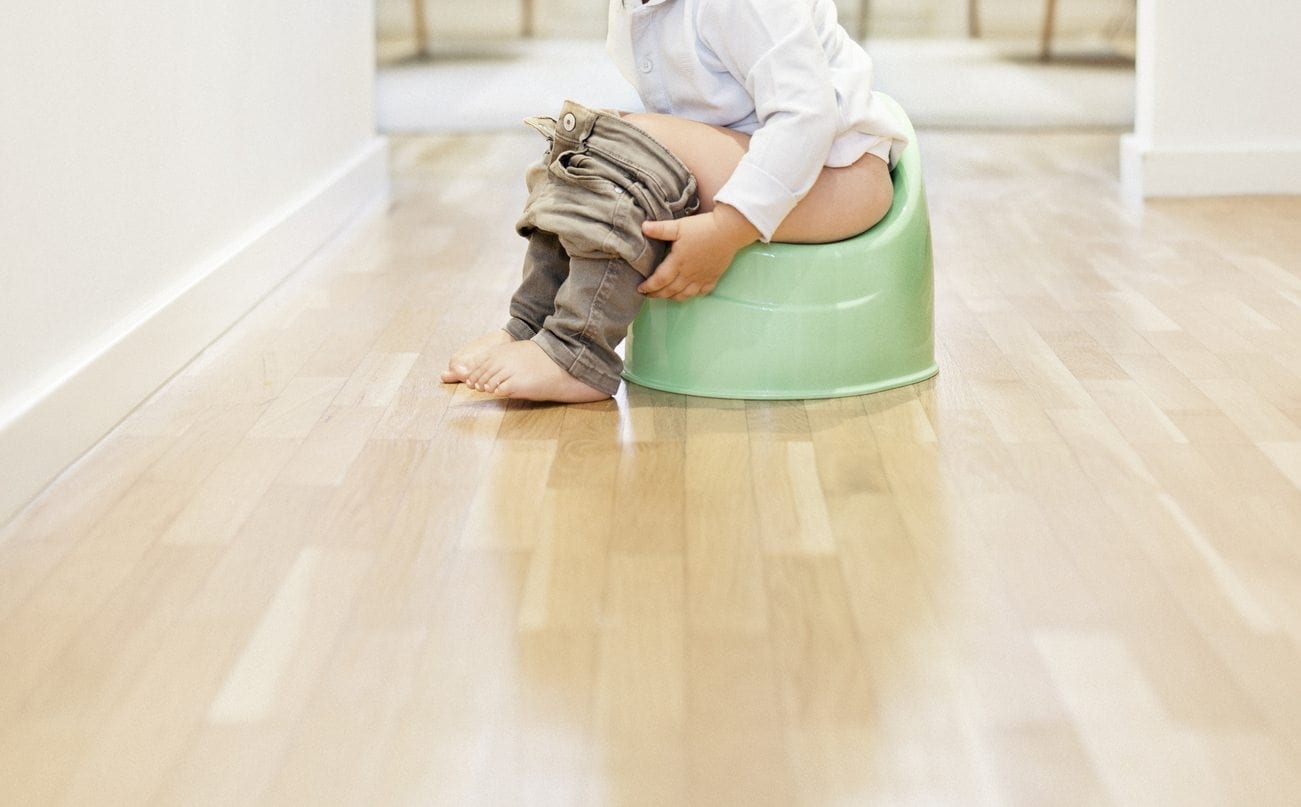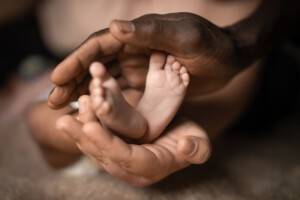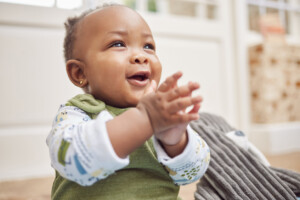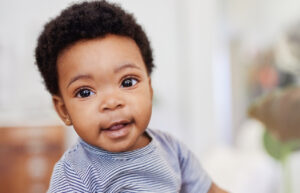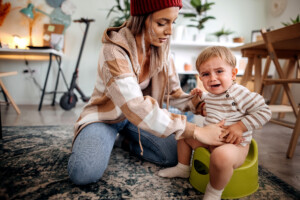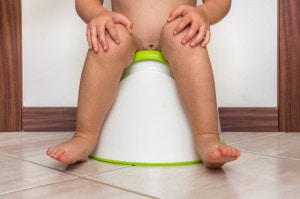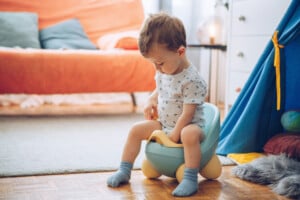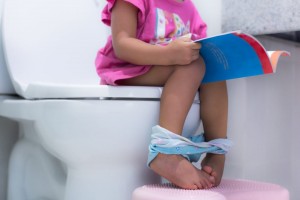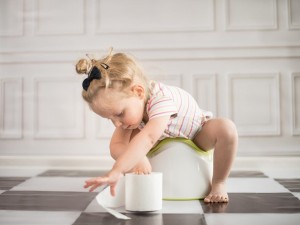As new parents, we subconsciously “parenting points” when our children hit their milestones early. “Oh, yeah. She learned to crawl at three months.” Or “She’s talked in full sentences since she was 15 months.” You don’t want to brag (okay, maybe you do just a little), but you’re just so gosh-darn proud! So it’s only natural to want to do the same thing with potty training and make them learn early. But I am here to tell you that if your child isn’t ready, you will just end up with pee and poop all over the place!
Is Your Child Ready for Potty Training? Ask Yourself These Questions
Before you jump into potty training, take a moment to consider these key questions. They’ll help you decide whether your child—and you—are truly ready.
1. Has My Child Shown Any Interest?
A child who naturally shows interest in potty training will likely potty train more quickly than one who has not. And if you ignore a child showing interest in potty training, it seems possible to miss their peak training time.
2. Am I Ready to Be Attentive?
At first, successful potty training is just as much about the parent as the child. Are you mentally ready for the journey? The younger the child is, the more the parent needs to be attentive to their needs. Even if they do potty train, they may not be able to hold their bladder or bowels as long as someone a year older, so their success often depends on parental support.
3. Am I Ready for Bathroom Breaks on the Go?
In some ways, diapers can be easier for some kids than underwear. Once they train, trips to the grocery store and Target may likely involve trips to the potty—sometimes even more than one. Oh my!
4. Do They Get Upset When They Are Messy or Wet?
A child who doesn’t like to be messy or dirty will likely train more easily than a child who doesn’t care if they’re dirty. I had one son who would pee his pants and never tell us because he DID. NOT. CARE, which meant potty training, was a PROCESS!
5. Are They Older Than 24 Months?
There are always exceptions to the rule, but the younger the child is, the more time it may take to be fully trained. And while some kids can train at 18 months with no problem, I think somewhere between the ages of 24-36 months seems to be the golden time for most kids! But if your child is showing interest, you don’t want to miss their window, no matter how young. So go for it.
6. Are They Scheduled With Their Bowel Movements?
If they are predictable with their poop, they are easier to set on a potty and get to use the bathroom. If they are irregular, you must rely more on their maturity in telling you, which can be tricky in young kids, but not impossible.
7. Am I Ready to Get Them Up and Take Them in the Night?
Some children do not night train at the same time as day training, but some do. For those that do, the parent must be willing to get up and take them to the potty at night to keep the success strong.
8. Are They Over Three?
Even if you answered no to all of these questions, they are most likely ready to potty train once a child has reached the age of three! So it’s probably worth your time because the older the child gets, the more disgusting diaper changes become. Am I right?
So, that concludes our quiz portion of this article. And if you have answered yes to three or more of these questions, your child is probably ready to potty train! Congratulations! The next step is determining the potty training method you want to use. Slow and steady or fast and furious. My favorite book for quick training is Potty-Training in Three Days:
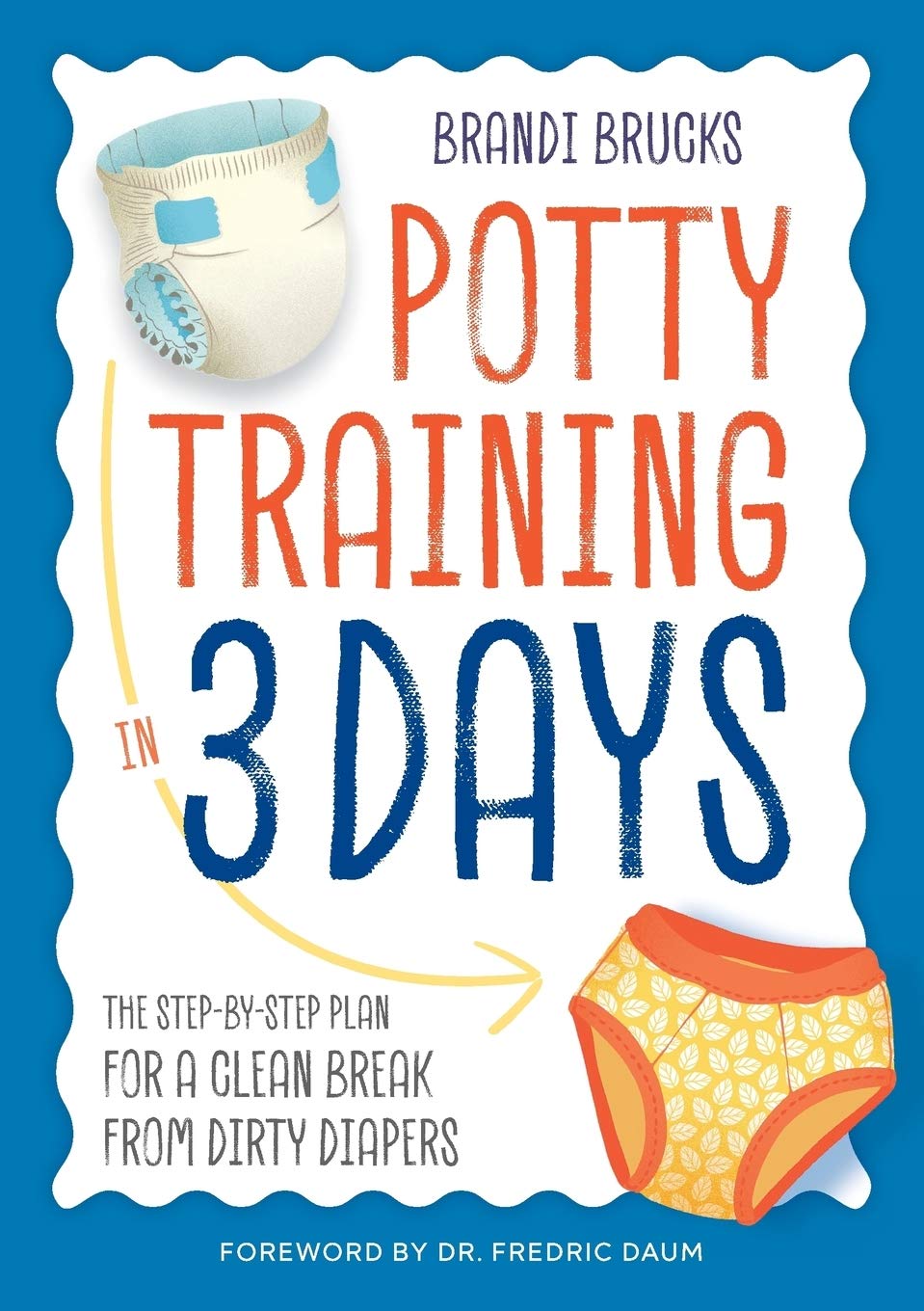
Potty training doesn’t have to be a battle. When your child is truly ready—and you are too—the process can be smoother and more successful. Trust your gut, stay flexible, and remember: every child reaches this milestone on their own timeline. You’ve got this!
